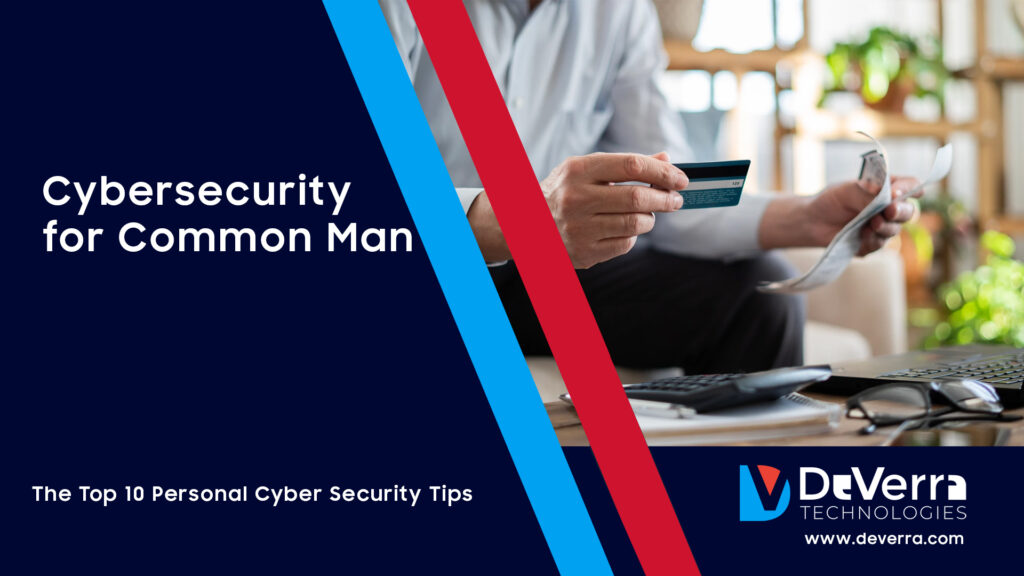Cybersecurity for Common Man..! The Top 10 Personal Cyber Security Tips

Cybersecurity is a critical aspect of our digital lives, and it’s essential to spread awareness and educate those who might not be familiar with these concepts.
“The victims of cyberattacks are often everyday individuals who may not fully grasp the fundamentals of internet security. Understanding these core concepts is vital for safeguarding your online presence. Here are key principles to help you comprehend the essentials:
1. Password Security: Implement strong, unique passwords for each online account. A robust password comprises a mix of upper and lower-case letters, numbers, and special characters. Avoid easily guessable information like your name or birthdate. Consider using a trustworthy password manager to securely generate and store complex passwords.
2. Phishing Attacks: Phishing is a prevalent cyber threat where scammers impersonate legitimate entities to trick you into disclosing sensitive information, such as passwords or credit card details. Exercise caution when encountering emails, messages, or phone calls requesting personal data or urging you to click on suspicious links. Always verify the legitimacy of the source before sharing sensitive information.
3. Software Updates: Keep your operating system, applications, and devices up to date. Regular updates frequently include security patches that address vulnerabilities. Enable automatic updates whenever possible, or manually check for updates and install them promptly.
4. Two-Factor Authentication (2FA): Whenever available, enable two-factor authentication on your accounts. 2FA adds an extra layer of security by requiring a second form of verification, such as a code sent to your mobile device in addition to your password. This substantially enhances your account’s security.
5. Public Wi-Fi Risks: Exercise caution when using public Wi-Fi networks, as they can be insecure and vulnerable to eavesdropping. Avoid accessing sensitive information or making online transactions on public networks. If necessary, utilize a virtual private network (VPN) to encrypt your internet traffic and protect your data.
6. Secure Website Connections: Always look for the padlock icon and “https://” in the URL when visiting websites, particularly when providing personal or financial information. These indicators denote encrypted connections, making your interactions more secure.
7. Social Media Privacy: Review and adjust the privacy settings on your social media accounts to control what information is visible to others. Be mindful of the personal information you share online and refrain from accepting friend or connection requests from unknown individuals.
8. Data Backup: Regularly back up your essential files and data to an external hard drive or secure cloud storage. This practice ensures that you can recover your data in case of hardware failure, accidental deletion, or ransomware attacks.
9. Antivirus and Anti-Malware Software: Install reputable antivirus or anti-malware software on your devices and keep it up to date. Conduct routine system scans for malware and adhere to the software’s recommendations for removing any threats.
10. Education and Awareness: Stay informed about the latest cybersecurity threats, scams, and best practices. Educate yourself through reliable sources, online courses, or workshops. Being aware of the risks and cultivating good cybersecurity habits is crucial for online protection.
We all share a responsibility to be vigilant and to educate those around us, including elderly parents, non-tech-savvy friends, and others who are new to the internet and may be more susceptible to online threats. Remember, cybersecurity is an ongoing process, and staying vigilant and informed is essential for your online safety.”
For more details visit our website
email: info@deverra.me
Mob: +973 37290137
Read in linkedin: Link